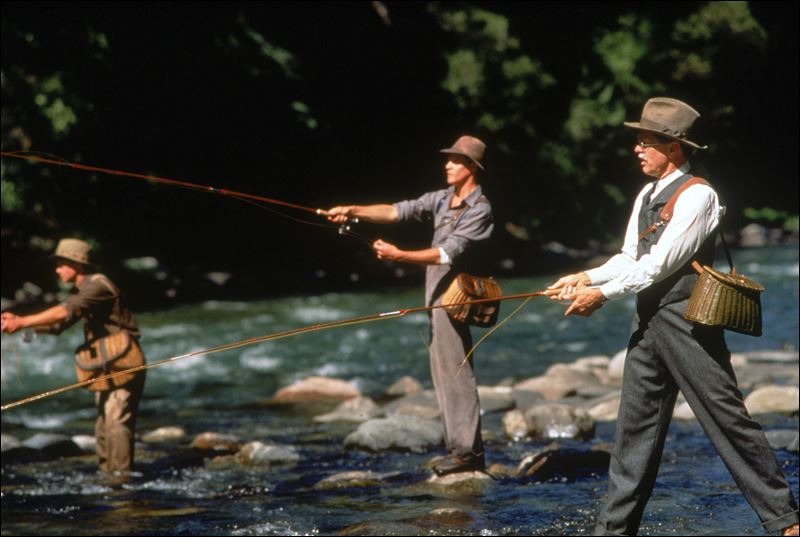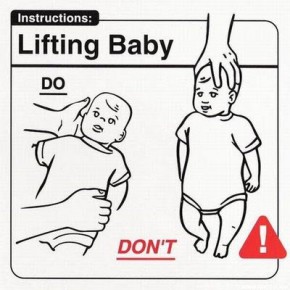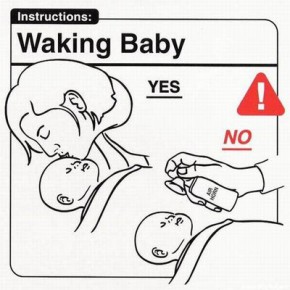
With Father’s Day almost upon us, a reflection on the subject courtesy of Scott Brand:

Of all the things that I am ashamed of, one of the more ridiculous is this:
I don’t know how to fish.
On the scale of things that have caused shame in my life, being unable to “cast a line” (is that how you say it?) is slightly above being unable to swallow pills until I was 16 and considerably lower than wetting my pants in second grade. And yet I am far more willing to admit both of those factoids than I am my complete lack of knowledge when it comes to angling (let’s be honest, I had to google synonyms for fishing).
This past weekend, I was confronted with that shame while at my cousin’s property east of Stone Mountain, Georgia. He has a private lake full of bass and other fish I don’t know how to name, and my uncle decided he wanted to take me out on the boat.
 Sheepishly, I told him the truth – I don’t know what I’m doing with a fishing rod in my hands.
Sheepishly, I told him the truth – I don’t know what I’m doing with a fishing rod in my hands.
Perhaps I should be offended at how little this surprised my uncle.
Regardless, he agreed to teach me once we were out there. Despite his best efforts and encouragement, the closest I got to actually catching one was reeling it to the boat, only for it to jump off my hook, take my worm, and escape into the water. Progress, I guess.
In a quiet moment on the water, left to my own thoughts, I began questioning why I had never learned, until the age of 26, how to properly cast a line. Wasn’t this one of the things my dad was supposed to teach me, along with hunting, pitching a tent, building a fire, and talking to girls? How could my dad have been any good if I never learned these things?
A couple of years ago, Sherwood Pictures (the film company based out of Sherwood Baptist Church in Georgia) released another of their direct-to-Christian films, Courageous. The film depicts four police officer fathers, convicted by their failures as fathers and husbands, to draw up a “Resolution” that would govern their lives and make them, ultimately, better men for their families. The movie inspired a movement of men’s ministries all around the country to “sign the Resolution”, planting their flags in the sand to become the men that they should be.
 The movie was a massive success, relatively speaking, and while I won’t discuss the artistic merits of its script or cinematography here, the reason it was successful is most likely not due to the acting, directing, or music. Hidden in the montages of fathers becoming better is something far more marketable and addictive than the most thrilling of action movies – law.
The movie was a massive success, relatively speaking, and while I won’t discuss the artistic merits of its script or cinematography here, the reason it was successful is most likely not due to the acting, directing, or music. Hidden in the montages of fathers becoming better is something far more marketable and addictive than the most thrilling of action movies – law.
The Resolution plays itself out exactly like we hoped it would. The characters create a list of what we’ll call “if’s” – if I spend more time with my family or buy my daughter a purity ring or improve and reconcile my relationship with my son or make amends to a woman I have hurt, etc… The movie rewards them with “thens” – then I will get a raise, have a daughter who does not get pregnant and whose boyfriend respects me, and secure my legacy. As soon as these men start fulfilling the resolution, their lives start on an upward trajectory toward fulfillment.
Man, I wish that were true. To those of us that are addicted to law (i.e. all of us), stories like this are intoxicating. The high lasts just long enough for us to recommit our lives to the “ifs”. And sometimes it works, at least for a little while.
I’m at the age now where a lot of my friends are starting to get married and have babies. I’m no statistician, but I would venture that somewhere between 75 and 150 percent of my Facebook feed is currently filled with engagement, wedding, or baby pictures. I’ve been around a few of my friends while their wives are pregnant, and the reality of impending fatherhood is not lost on them. The common sentiments fall in two categories: “I just want to be as good a father as my own dad” or “I just want to be a better father than my dad.”
The bar has been set.
 It is law, and, by its very definition, my friends’ success as a dad will depend entirely on the outcome of their kid’s lives. The proof of the success of following the formula is in the results. Want to be better than our dads? Our kids can’t have the same problems, addictions, and temperaments we have, or we have failed. Want to be as good as our dads? Our kids must at least maintain the level of success we have achieved. Teenage pregnancy, addictions of any kind, college drop-outs, and fans of the wrong college sports teams are all indications that we have failed to live up to the standard of fatherhood. “Resolutions”, “10 ways to be a better dad”, or any other checklist that can be followed become lifelines of hope to fathers grasping for any hand hold to secure their legacy. Same goes for mothers, incidentally enough.
It is law, and, by its very definition, my friends’ success as a dad will depend entirely on the outcome of their kid’s lives. The proof of the success of following the formula is in the results. Want to be better than our dads? Our kids can’t have the same problems, addictions, and temperaments we have, or we have failed. Want to be as good as our dads? Our kids must at least maintain the level of success we have achieved. Teenage pregnancy, addictions of any kind, college drop-outs, and fans of the wrong college sports teams are all indications that we have failed to live up to the standard of fatherhood. “Resolutions”, “10 ways to be a better dad”, or any other checklist that can be followed become lifelines of hope to fathers grasping for any hand hold to secure their legacy. Same goes for mothers, incidentally enough.
Validation is found in the success of the child.
On the flip side, how much of our lives, as sons, have we blamed upon our fathers? Would my life have panned out the way I had planned if my dad had taught me to fish, hunt, and a million other things our society says he needed to do to make me the person I need to be? Can I be a good father someday if I don’t know how to teach my son these same things that I never learned?
I do not want to make it seem at all like I had an absentee father. Quite the opposite, in fact. My dad was and is so very present. He is the best father I could ever ask for. He taught me something far more valuable than anything I could have hoped:
Neediness.
 The most profound memories I have from my dad come from moments when he showed weakness. He taught me and my siblings what it looked like to confess sins by confessing to us. He admitted over and over again to us that he didn’t know what he was doing. His fatherhood was not marked by the upward trajectory of becoming a better father based on commitment. Rather than being driven by a desire to be better than his absentee dad or to live up to a “Resolution”, my father very vocally admitted that he would fail us, and instead pointed us to our Heavenly Father, who is Perfect. As a family, we saw our dad consistently running to Jesus for his righteousness.
The most profound memories I have from my dad come from moments when he showed weakness. He taught me and my siblings what it looked like to confess sins by confessing to us. He admitted over and over again to us that he didn’t know what he was doing. His fatherhood was not marked by the upward trajectory of becoming a better father based on commitment. Rather than being driven by a desire to be better than his absentee dad or to live up to a “Resolution”, my father very vocally admitted that he would fail us, and instead pointed us to our Heavenly Father, who is Perfect. As a family, we saw our dad consistently running to Jesus for his righteousness.
In other words, he never seemed to be all that interested in declaring himself righteous through his parenting–which is precisely what I suspect made (and makes) him such a great dad. He understands, on some gut level, that he is free from the law that tells him he will never be good enough, or that his validation as a father comes from the success of his children.
The proof is in the way he loves me now. I’m a 26 year old without a consistent job, no bachelors degree, who needs to borrow money from my parents to stay afloat. I drive a ’95 Camry. I’m a long way from giving him any grandkids. I’m not really someone he can brag to his friends about.
Yet, on a recent phone call, he told me something that defies the logic of our law-addicted hearts. It had nothing to do with my personal success or validation of him or by ability to fish.
He told me he was proud of me.
I love you, dad.

COMMENTS
One response to “On Fishing and Fatherhood”
Leave a Reply













Nothing better to compliment this post than “I Love My Dad” by Sun Kil Moon.